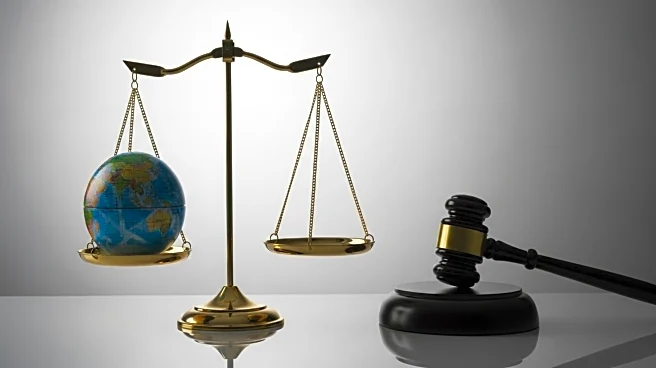What is the story about?
What's Happening?
A federal appeals court has ruled that the majority of tariffs imposed by President Trump were unlawful, affirming a previous decision by the Court of International Trade. The court found that Trump's use of the 1977 International Emergency Economic Powers Act to declare an 'economic emergency' and set tariff rates without congressional approval was illegal. Nobel laureate Paul Krugman criticized Trump's approach, calling it a 'self-inflicted disaster.' The ruling does not eliminate tariffs but challenges the legal basis for their imposition. Trump has used tariffs to pressure international trade partners and claims they have generated significant revenue for the U.S. Treasury.
Why It's Important?
The ruling poses a significant challenge to Trump's trade policy, which has been central to his administration's economic strategy. The decision could lead to the refunding of billions in tariff revenue, impacting federal finances. Trump's tariff strategy has strained international relations and raised concerns about economic growth and consumer prices. The ruling highlights the limits of presidential power in trade matters and could influence future administrations' approaches to trade policy. The potential appeal to the Supreme Court could set a precedent for the extent of executive authority in economic matters.
What's Next?
The ruling is set to take effect on October 14, but the Trump administration is expected to appeal to the Supreme Court. If the appeal is unsuccessful, the government may have to refund collected tariffs, affecting federal revenue. The decision could also prompt a reevaluation of trade policies and strategies. Stakeholders, including businesses and international trade partners, will be closely monitoring the developments, as the outcome could have significant implications for global trade dynamics and U.S. economic policy.















